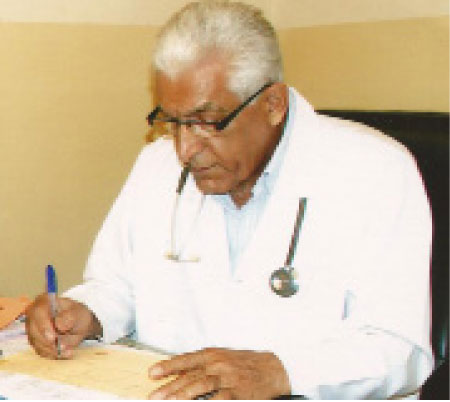
Fibroids in African American Women
Nearly 70% to 80% of African American women will experience uterine fibroids, not cancer tumours that cause symptoms such as heavy bleeding, pain and pelvic pressure. While fibroids are common in most women, there has been great speculation as to why African American women experience them at a much higher rate.
Fibroids are so prevalent in African American women. Most current literature suggests that age, diet, use of contraceptives, and having children are risk factors for women developing fibroids. These factors; however, do not explain the prevalence in African American women.
New studies showed that a genetic component in the development of fibroids.
Researchers in Scandinavia have identified certain genes that may predispose women to uterine fibroids. Currently, these genes don’t appear to be present in African American women and more studies still need to be conducted.
Uterine fibroids are noncancerous growths of the uterus that often appear during childbearing years. Uterine fibroids aren’t associated with an increased risk of uterine cancer and almost never develop into cancer.
Uterine fibroids develop from the smooth muscular tissue of the uterus. A single cell divides repeatedly, eventually creating a firm, rubbery mass distinct from nearby tissue. The growth patterns of uterine fibroids vary — they may grow slowly or rapidly, or they may remain the same size. Some fibroids go through growth spurts, and some may shrink on their own. Many fibroids that have been present during pregnancy shrink or disappear after pregnancy, as the uterus goes back to a normal size.
Fibroids range in size from seedlings, undetectable by the human eye, to bulky masses that can distort and enlarge the uterus. They can be single or multiple, in extreme cases expanding the uterus so much that it reaches the rib cage.
As many as 3 out of 4 women have uterine fibroids sometime during their lives, but most are unaware of them because they often cause no symptoms. Your doctor may discover fibroids incidentally during a pelvic exam or prenatal ultrasound.
Symptoms
In women who have symptoms, the most common symptoms of uterine fibroids include:
· Heavy menstrual bleeding
· Prolonged menstrual periods - seven days or more of menstrual bleeding
· Pelvic pressure or pain
· Frequent urination
· Difficulty emptying your bladder
· Constipation
· Backache or leg pains
Rarely, a fibroid can cause acute pain when it outgrows its blood supply. Deprived of nutrients, the fibroid begins to die. By-products from a degenerating fibroid can seep into surrounding tissue, causing pain and, rarely, fever. A fibroid that hangs by a stalk inside or outside the uterus can trigger pain by twisting on its stalk and cutting off its blood supply.
Fibroid location, size and number influence signs and symptoms:
· Fibroids that grow into the inner cavity of the uterus are more likely to cause prolonged, heavy menstrual bleeding and are sometimes a problem for women attempting pregnancy.
· Fibroids that project to the outside of the uterus can sometimes press on your bladder, causing you to experience urinary symptoms. If fibroids bulge from the back of your uterus, they occasionally can press either on your rectum, causing a pressure sensation, or on your spinal nerves, causing backache.
Some fibroids grow within the muscular uterine wall (intramural fibroids). If large enough, they can distort the shape of the uterus and cause prolonged, heavy periods, as well as pain and pressure.
Treatment
What type of treatment you have depends on:
· Your age
· Your general health
· Your symptoms
· Type of fibroids
· If you are pregnant
· If you want children in the future
Treatment for the symptoms of fibroids may include:
· Birth control pills to help control heavy periods
· Intrauterine devices (IUDs) that release hormones to help reduce heavy bleeding and pain
· Iron supplements to prevent or treat anaemia due to heavy periods
· Pain relievers such as ibuprofen for cramps or pain
· Hormone therapy shots to help shrink fibroids (done only for a short time)
· Watchful waiting: You may have pelvic exams or ultrasounds every once in a while to check the fibroid’s growth
Outlook (Prognosis)
If you have fibroids without symptoms, you may not need treatment.
If you have fibroids, they may grow if you become pregnant. This is due to the increased blood flow and higher estrogens levels. The fibroids usually return to their original size after your baby is born.
Complications of fibroids include:
· Severe pain or very heavy bleeding that needs emergency surgery
· Twisting of the fibroid. This can causes blocked blood vessels that feed the tumour. You may need surgery if this happens.
· Anaemia (not having enough red blood cells) from heavy bleeding
· Urinary tract infections: If the fibroid presses on the bladder, it can make it hard to empty your bladder completely.
· Infertility, in rare cases.
If you are pregnant, there’s a small risk that fibroids also may cause complications:
· You may deliver your baby early because there is not enough room in your womb.
· If the fibroid blocks the birth canal or puts the baby in a dangerous position, you may need a c-section.
· You may have heavy bleeding right after giving birth.
When to see a doctor
See your doctor if you have:
· Pelvic pain that doesn’t go away
· Overly heavy or painful periods
· Spotting or bleeding between periods
· Pain consistently with intercourse
· Enlarged uterus and abdomen
· Difficulty emptying your bladder
Seek prompt medical care if you have severe vaginal bleeding or sharp pelvic pain that comes on suddenly.
Causes
Doctors don’t know the cause of uterine fibroids, but research and clinical experience point to these factors:
· Genetic changes. Many fibroids contain changes in genes that differ from those in normal uterine muscle cells. There’s also some evidence that fibroids run in families and that identical twins are more likely to both have fibroids than none identical twins.
· Hormones. Estrogens and progesterone, two hormones that stimulate development of the uterine lining during each menstrual cycle in preparation for pregnancy, appear to promote the growth of fibroids. Fibroids contain more estrogens and progesterone receptors than normal uterine muscle cells do. Fibroids tend to shrink after menopause due to a decrease in hormone production.
Other growth factors. Substances that help the body maintain tissues, such as insulin-like growth factor, may affect fibroid growth.
Complications
Although uterine fibroids usually aren’t dangerous, they can cause discomfort and may lead to complications such as anaemia from heavy blood loss.
Pregnancy and fibroids
· Fibroids usually don’t interfere with conception and pregnancy. However, it’s possible that fibroids could cause infertility or pregnancy loss. Fibroids may prevent implantation and growth of an embryo. In such cases, doctors often recommend removing these fibroids before attempting pregnancy or if you’ve had multiple miscarriages. Rarely, fibroids can distort or block your fallopian tubes, or interfere with the passage of sperm from your cervix to your fallopian tubes.
Tests and diagnosis
Uterine fibroids are frequently found incidentally during a routine pelvic exam. Your doctor may feel irregularities in the shape of your uterus, suggesting the presence of fibroids. If you have symptoms of uterine fibroids, you doctor may order these tests:
· Ultrasound (Scan) if confirmation is needed, your doctor may order an ultrasound. It uses sound waves to get a picture of your uterus to confirm the diagnosis and to map and measure fibroids. A doctor or technician moves the ultrasound device (transducer) over your abdomen or places it inside your vagina to get images of your uterus.
· Lab tests. If you’re experiencing abnormal vaginal bleeding, your doctor may order other tests to investigate potential causes. These might include a complete blood count (CBC) to determine if you have anaemia because of chronic blood loss and other blood tests to rule out bleeding disorders or thyroid problems.
Watchful waiting
Many women with uterine fibroids experience no signs or symptoms, or only mildly annoying signs and symptoms that they can live with. If that’s the case for you, watchful waiting could be the best option. Fibroids aren’t cancerous. They rarely interfere with pregnancy. They usually grow slowly — or not at all — and tend to shrink after menopause, when levels of reproductive hormones drop.
Options for traditional surgical procedures include:
· If you have multiple fibroids, very large fibroids or very deep fibroids, your doctor may use an open abdominal surgical procedure to remove the fibroids. Many women who are told that hysterectomy is their only option can have removal of tumours in saving the womb instead.
· Hysterectomy. This surgery — the removal of the uterus — remains the only proven permanent solution for uterine fibroids. But hysterectomy is major surgery. It ends your ability to bear children. And if you also elect to have your ovaries removed, it brings on menopause and the question of whether you’ll take hormone replacement therapy. Most women with uterine fibroids can choose to keep their ovaries.
Risk of developing new fibroids
For all procedures, except hysterectomy, tiny tumours (seedlings) that your doctor doesn’t detect during surgery could eventually grow and cause symptoms that warrant treatment. This is often termed the recurrence rate. New fibroids, which may or may not require treatment, also can develop.
For further information visit any Government Hospital and Clinics throughout the Country, number of NGO/Private Clinics, e mail on azadehhassan@yahoo.co.uk, call on AFRI-RADIO DR Azadeh live Health Show every Wed from 9-9.30 am, or text to 002207774469 / 3774469 during working hours.
Author: Dr Azadeh Senior Lecturer at the University of the Gambia, Senior Consultant in Gynaecology & Obstetrics
Read Other Articles In Article (Archive)




